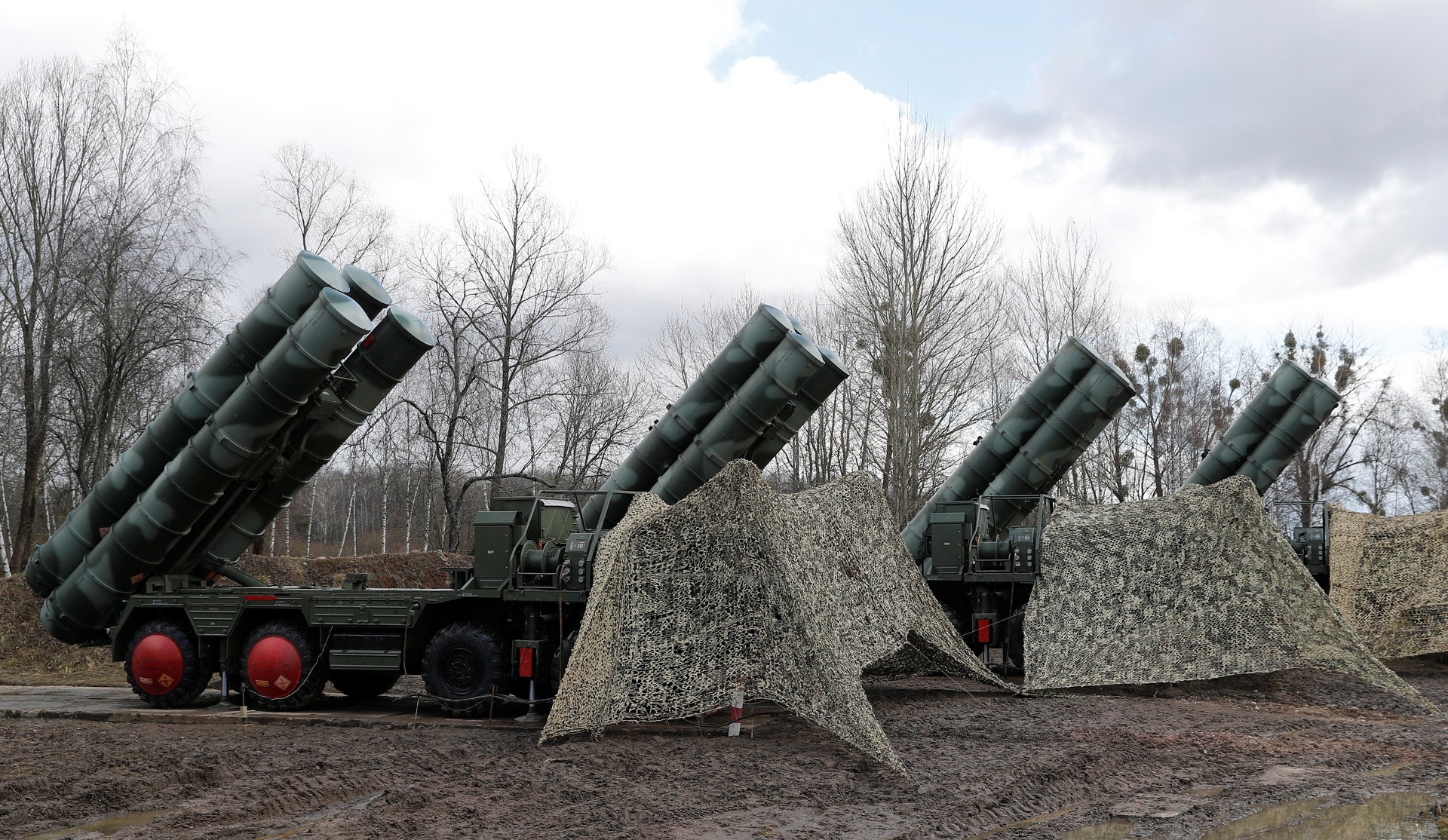A transport plane arrived at the Myurt airbase as part of the second batch of deliveries of Russian S-400 air defense systems to Turkey. This was announced on Tuesday, August 27, at the country's Ministry of Defense.
“Today, deliveries of elements of the second battery of the S-400 air defense system began. The plane arrived from Russia at the Myurt airbase in Ankara province. Deliveries will last about a month, ”the Turkish military said in a statement.
Recall that the previous stage of deliveries lasted from July 12 to July 25. The first batch of complexes was transported by a total of 30 transport aircraft.
Deploy systems in Turkey are planning in the spring of 2020. This was announced in July by President Recep Tayyip Erdogan.
“By April 2020, the S-400 will be fully deployed,” he noted.
"Double standards"
The USA sharply opposed Turkey’s purchase of Russian systems. In particular, representatives of the American administration stated that the systems cannot be used together with American military vehicles. It was about the F-35 fighters that Washington was supposed to deliver to Ankara.
“The US is disappointed to learn that Turkey sent personnel to Russia to train on the S-400 systems. S-400 is not compatible with F-35. We clearly informed at all levels that Turkey will not receive the F-35 if it accepts the supply of S-400 systems, ”said Ellen Lord, US Undersecretary of Defense for Procurement and Support.
NATO also noted that the S-400 cannot be used as part of the alliance's defensive infrastructure.
“There are no plans to integrate Russian S-400 systems into a single NATO air defense and missile defense system,” said Alliance Secretary General Jens Stoltenberg in early August.
- S-400 systems
- Reuters
- © Vitaly Nevar
It is worth noting that Russian air defense systems are in service with some other NATO countries, including Bulgaria and Slovakia. Greece has two divisions of the S-300 PMU1 systems. The complexes are located on the island of Crete, in 2013 the first firing was made from them.
However, the US reacts differently to the presence of Russian systems in the armed forces of these two countries. This is because the United States cannot fully trust Turkey, said Alexander Domrin, professor of law at the Higher School of Economics.
“It seems to me that the United States has more suspicion about Turkey than about Greece. The United Europe is still under the cap of the United States, Turkey is not under such a cap. Turkey is more or less independent, in contrast to the more than dependent Greece, or more than the dependent EU countries that are members of NATO. Hence such double standards regarding Turkey, ”he said in an interview with RT.
However, an important role is played by economic interest, the expert believes. Trump is actively pushing the sale of American weapons to partners, including Turkey, but when a NATO partner prefers to buy weapons from the US "geostrategic adversary", this becomes a signal for Washington, Domrin concludes.
Recall, the United States offered Turkey its SAM Patriot instead of Russian systems. In late August, the proposal was withdrawn.
New weapons
In May, President Erdogan announced that the country will jointly with Russia produce S-500 systems.
Such cooperation is possible, said military expert, editor-in-chief of Arsenal of the Fatherland magazine Viktor Murakhovsky in an interview with RT.
“You need to understand that the S-500, S-400 and S-300 systems combine thousands of items, parts, assemblies, and units and other nomenclatures, which together constitute the system itself. Roughly speaking, from the wheel for the tractor to, for example, the homing of an anti-aircraft guided missile. It is possible that some elements of the system that Turkey can produce can be given to it for production, ”he notes.
However, Turkey will not be able to produce important components, since it does not have the appropriate capacities for this, Mukharovsky says.
“If Turkey decides to produce the key elements of the system itself, it will need to build new sectors of the defense industry. This is unrealistic. And the fact that they can produce based on the level of their industry is quite likely to be done. Chassis, for example, or some auxiliary elements, ”concludes the specialist.

